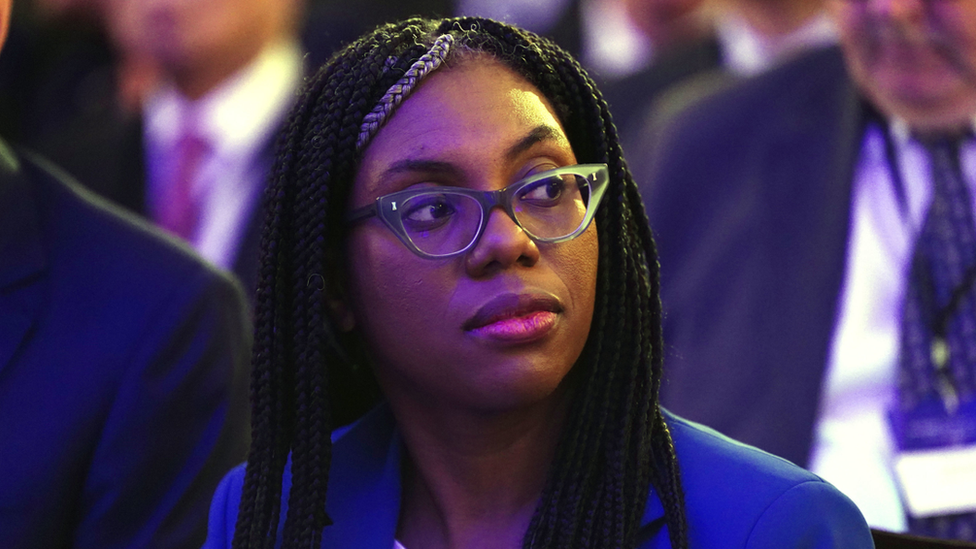Brexit: Dividing opinion and families in London four years on

Alex Bastien, with his wife Lyooza and children Nico and Ilya, says Brexit made it hard for them to stay in Sweden which they had thought of as home
- Published
In a flat in Richmond upon Thames, Alex Bastien shows me photos of his family having a fun day out at the seaside in the country that they used to call home.
He and his wife Lyooza moved to Sweden almost eight years ago. Their children Ilya, 7, and Nico, 5, were born there, but the family’s dream of staying in Sweden was dashed when Britain formally left the European Union (EU) four years ago.
That saw an end to freedom of movement between Britain and EU countries, and while European citizens living in the UK had to apply for settled status, external to stay here, Brits living in EU countries also had to apply for the right to remain there.
Alex did that in Sweden, but his application was rejected and he and his family almost ended up being deported.
Alex told me: “We felt like European citizens… Sweden was our home” but he said Brexit had “caused a lot of headaches for a lot of Brits and I think a lot of the other EU countries… like Sweden interpreted the rules quite harshly and made life very difficult for a lot of Brits living there.”

A visit to the seaside in Helsingborg in Sweden, which is in the European Union
In order to avoid being deported, Alex applied for an Irish passport, as he had an Irish grandmother.
The whole experience made him and his wife feel like they were not welcome in Sweden anymore, so they decided to moved back to London.
His family now live in Richmond - a borough in south-west London that was even more pro-European than the capital as a whole was, back in 2016. At that time almost 60% of Londoners voted to remain in the EU – while the UK chose to leave.
Recent polling suggests that since then Londoners have not exactly warmed to the idea of having left the EU. Around 60% of those questioned, said they thought Brexit had failed, external and that we should re-join parts of it.
Brexit is still dividing opinion - and families
Gauging opinion in Richmond town centre, I spoke to Fiona, who told me that some members of her family still do not speak to her because she voted in favour of Brexit in the 2016 referendum.
She told me she was hopeful that they would eventually come round and said she thought that, in time, people would see Brexit as “a very good thing” that would “work out for the best”.

Fiona says some members of her family still do not speak to her since she voted for Brexit
But another Richmond resident had the opposite view. Lorna blamed Brexit for the rising costs that Londoners had been facing. She said: “I think it shot everything up. The cost of living is astronomical now and it’s a struggle for all of us.”
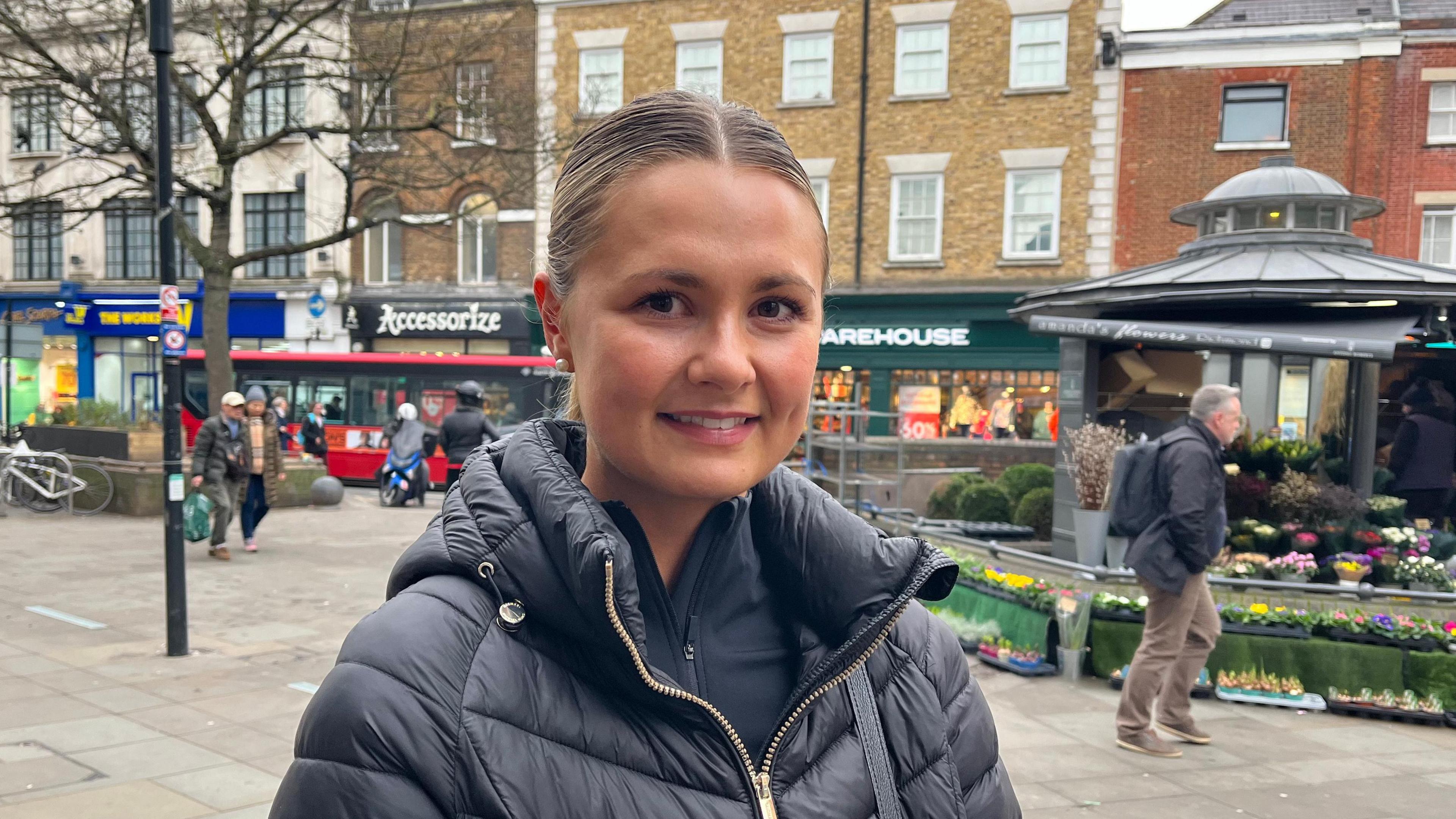
Lorna blames Brexit for the rise in the cost of living
Impact of Brexit on London's economy
London’s economy has felt the impact of Brexit, with industries like hospitality and construction struggling to fill posts.
A recent report commissioned by the Mayor of London – who has long been an opponent of Brexit – said there were now 290,000 fewer jobs in the capital than there would have been if Brexit had never happened.
The report, external by Cambridge Econometrics also said that Brexit had cost London’s economy £30bn so far.
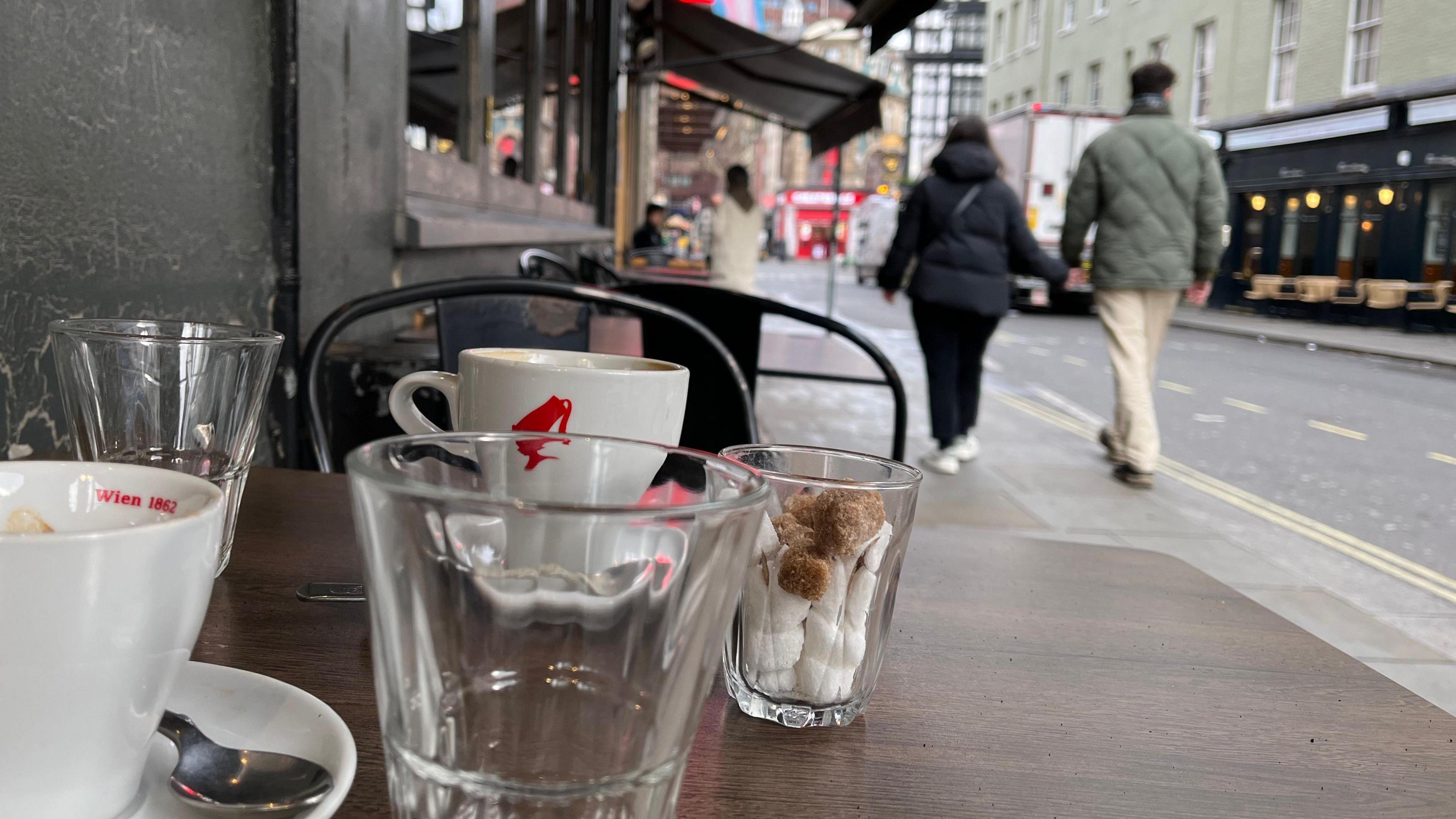
London's hospitality industry has seen staff shortages since Brexit
Dr Jack Brown, a lecturer in London Studies at King’s College London, said that “labour shortages in hospitality” did “seem to be very directly related to Brexit”.
But he said it was “incredibly difficult to work out exactly what's down to Brexit and what's down to Covid” because other factors like the pandemic and the war in Ukraine had also had an impact on London’s economy and workforce.
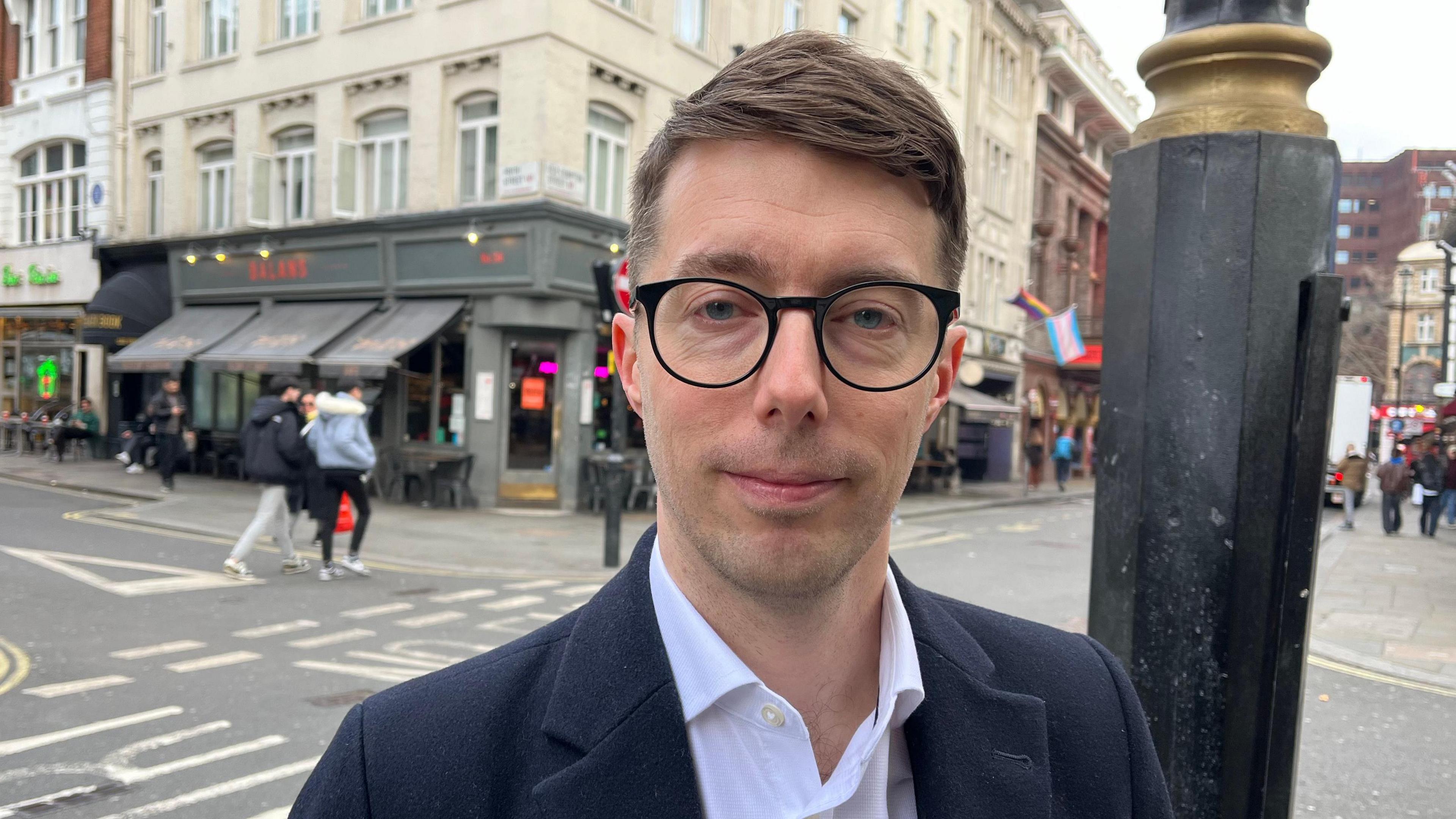
Dr Jack Brown says Brexit is not the only factor that has impacted on London's economy and workforce
There had been fears that London’s status as a world financial services centre would crumble after Britain left the EU, but that has not rung true, according to the City of London Corporation.
Its policy chairman, Chris Hayward, said that “for the jobs” the City of London had “lost as a result of Brexit”, it had “seen new jobs coming from the EU” and he pointed to the growth in London’s tech sector.
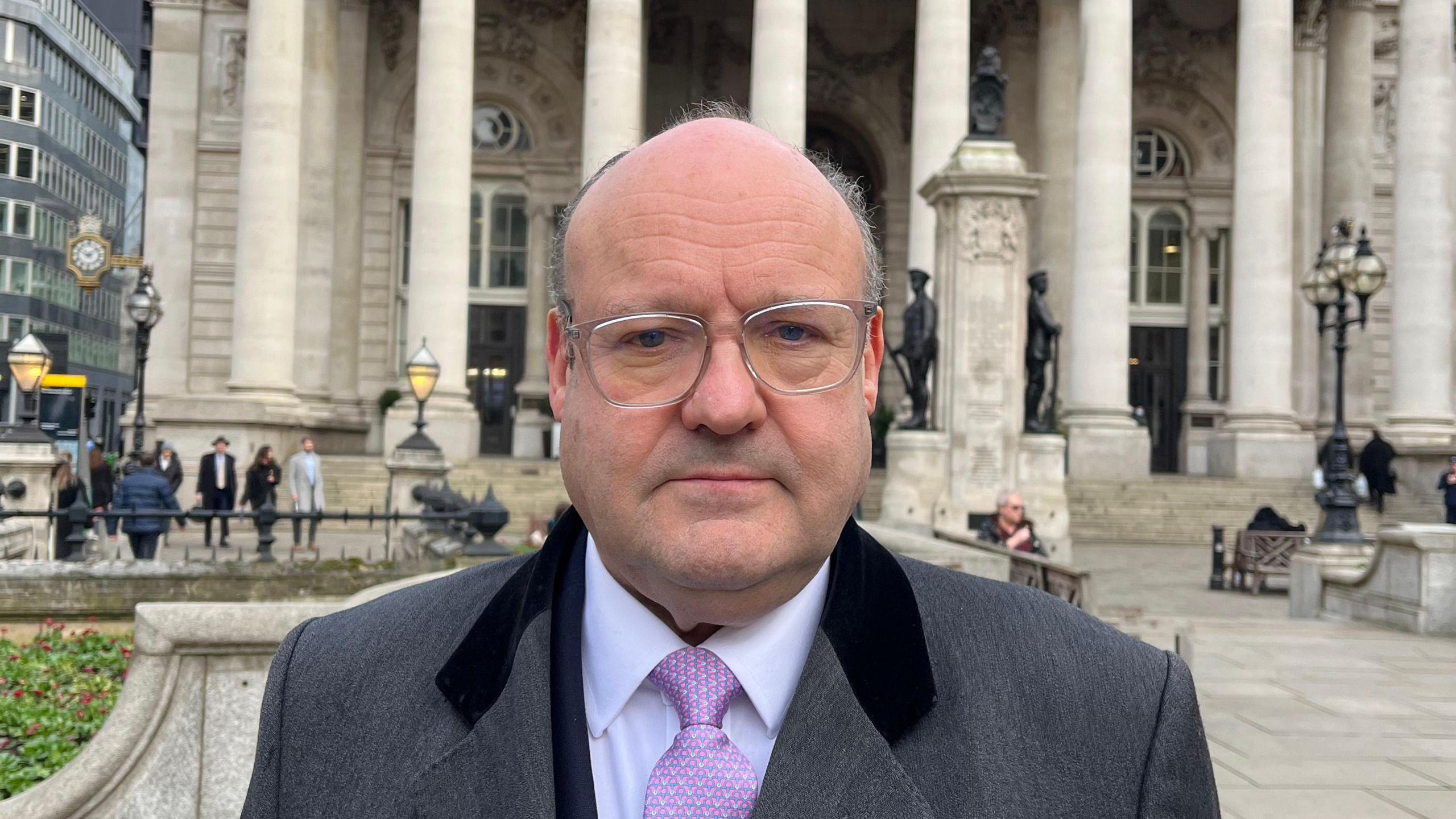
Chris Hayward from the City of London Corporation says London's financial services sector has "survived" Brexit
The City of London Corporation released its own report, external last week that said London had regained its title as the world’s top financial centre – although some argue New York still holds that crown.
On Brexit’s impact on London’s financial sector, Mr Hayward said: “We’ve all been wrong. I wouldn’t have voted for Brexit… but I think, actually, we’ve survived and are moving forward.”
A spokesperson for the Treasury said the government was “making the most of our Brexit freedoms to grow the economy” and that financial services sector reforms would “unlock over £100bn of investment”.
Related topics
- Published11 January 2024
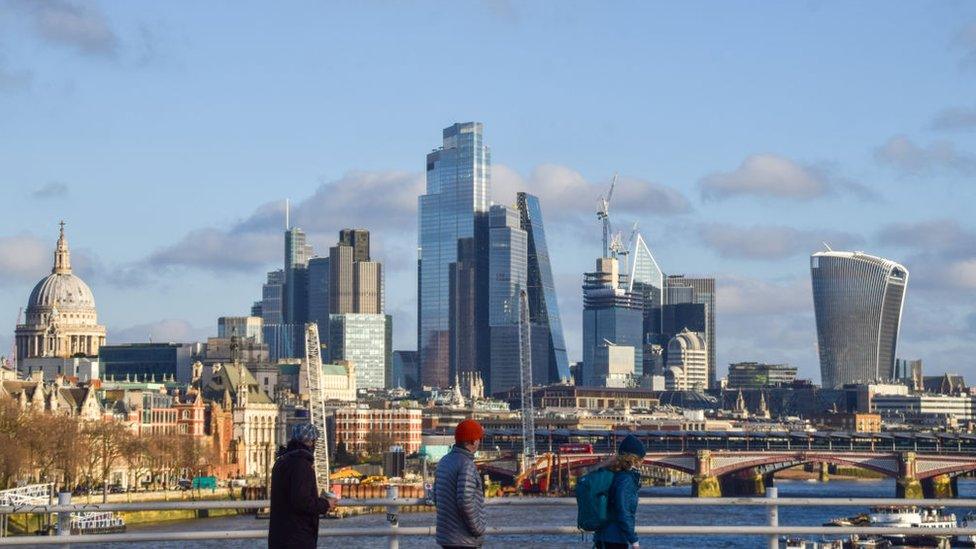
- Published31 January 2024

- Published25 January 2024
